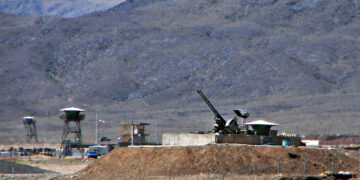
For the first time, the state of Israel has launched a unilateral, unprovoked attack on the territory of one of its Gulf neighbors. The decision to strike a meeting of senior Hamas officials in Qatar’s capital of Doha on September 9 was as risky as it was foolish and intentional. Indeed, Israeli Prime Minister Benjamin Netanyahu, facing increasing criticism at home over his country’s war and ethnic cleansing campaign in Gaza, almost certainly hoped to kill diplomatic efforts, providing a rationale to continue pursuing a violent solution in Gaza.
Opting to strike a mediator amid the ongoing, indirect negotiations between Tel Aviv and Hamas certainly can help achieve that outcome. Israel targeted the Hamas meeting multiple times, but, reports say the strikes likely failed to kill any senior leaders. Rather, Hamas announced that five non-senior members were killed, with Doha confirming the death of one security officer and multiple other injuries to its nationals.
The timing of those strikes was hardly a coincidence. United States President Donald Trump had just announced his “final offer” to the Palestinian armed faction days prior, claiming Israel had accepted the terms while heaping additional public pressure on Hamas to accept a new ceasefire in Gaza. Yet, it was Israel that played spoiler once again, seeing an opportunity to wipe out Hamas’s senior political leadership abroad after years of threatening to do just that, even in the face of widespread international support for an end to the fighting in Gaza.
As such, the incident sparked global uproar. Regional leaders, major Western allies of Israel, the United Nations, and the United States all condemned the strike to varying degrees, citing international law and the basic concept of state sovereignty. For Trump’s Washington to publicly oppose Tel Aviv’s violation of Doha’s sovereign rights should speak volumes.
More on Middle East

Featuring Rosemary Kelanic
October 16, 2025
Featuring Daniel Davis
October 15, 2025
Events on Israel-Hamas







